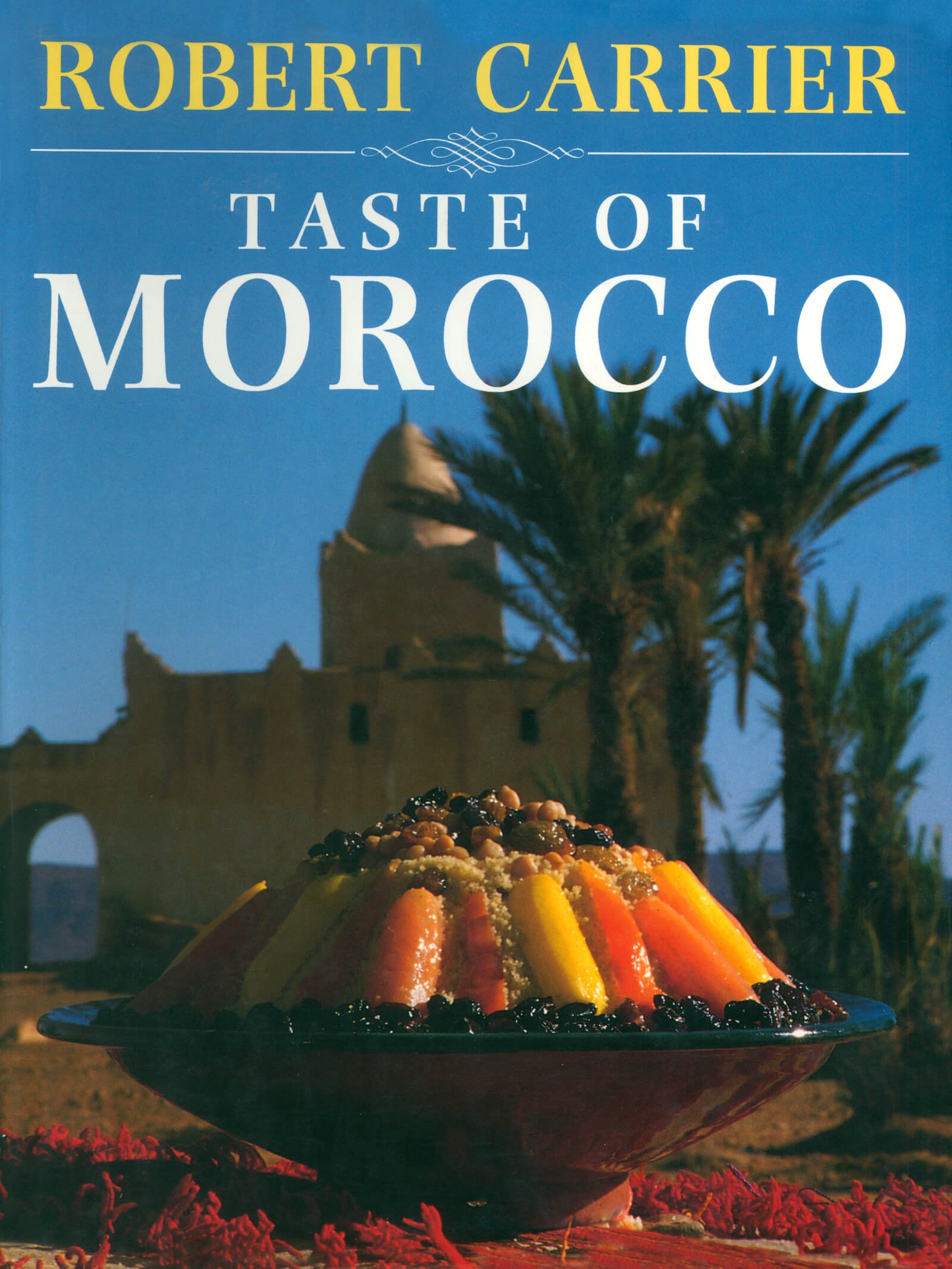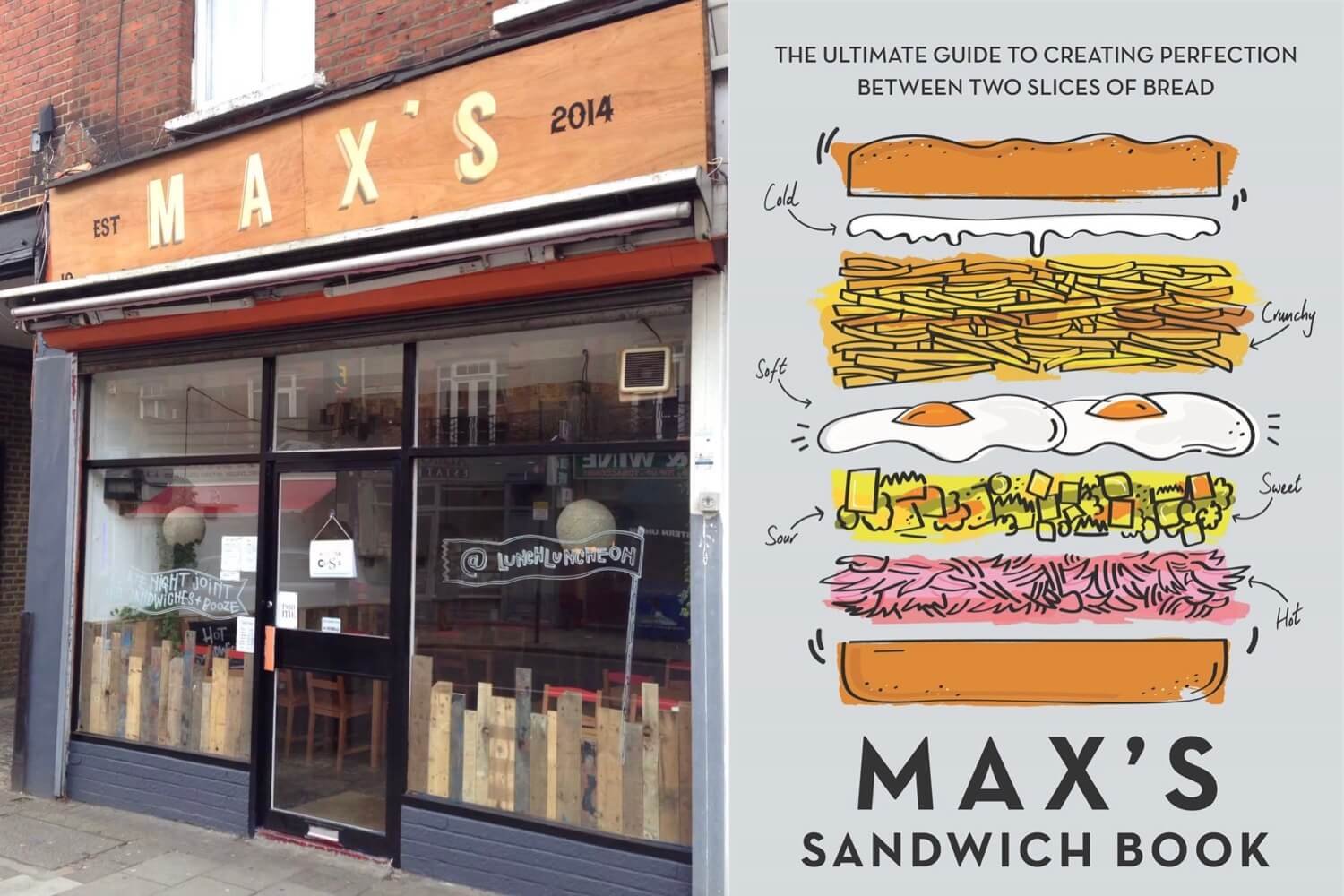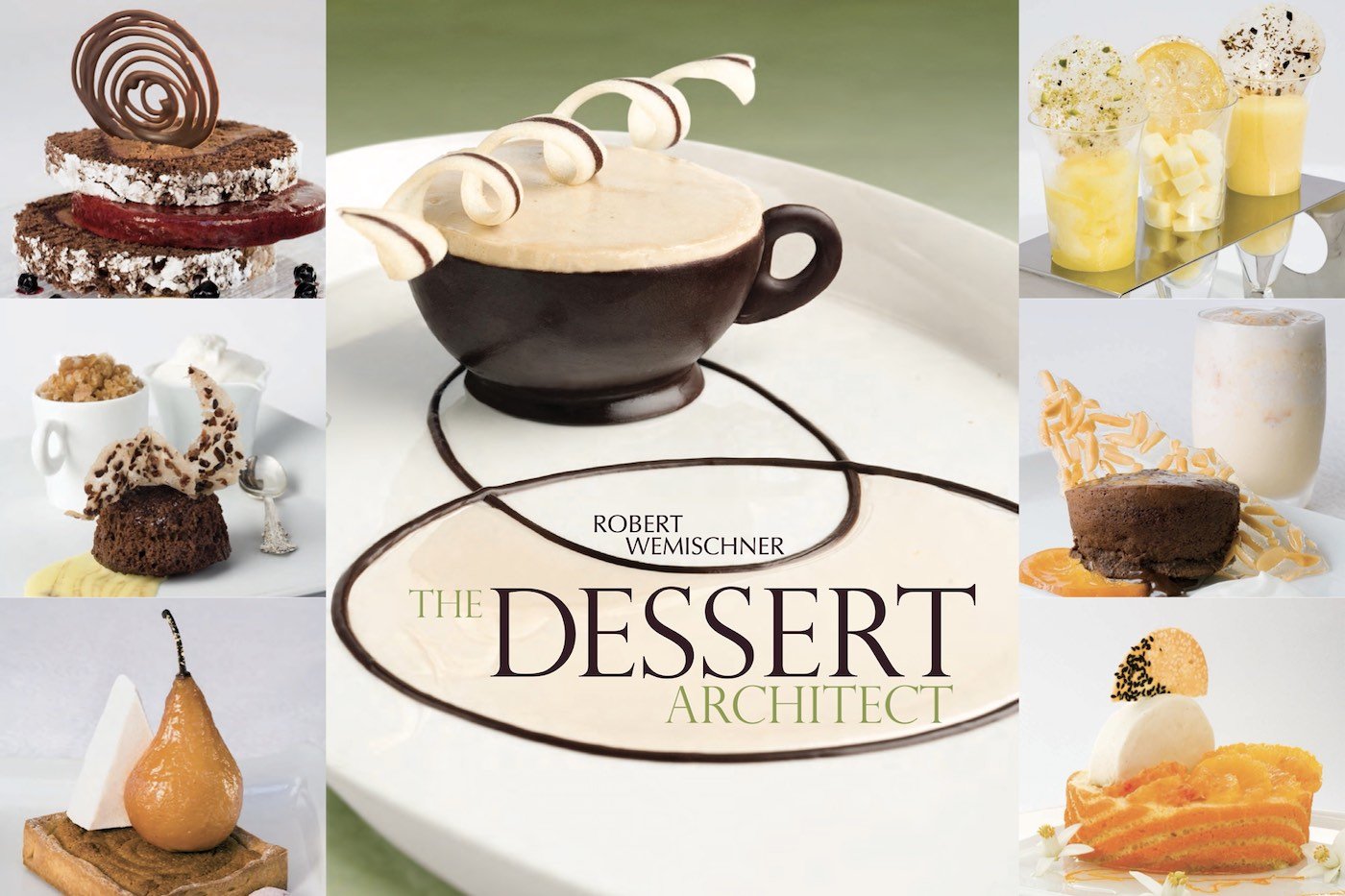Advertisement
Author profile: Robert Carrier
26 January 2023 · Author Profile
Taste of Morocco is the third title by the late Robert Carrier to be added to ckbk. Carrier played a pioneering role in enthusiastically advocating good food to audiences in Britain and America in the 60s, 70s and 80s, and his books sold in their millions. He spent several months each year in Marrakesh, and Morocco held a special place in his heart. To mark the appearance of Taste of Morocco on ckbk Luke Honey remembers the chef and his influence in this author profile.
By Luke Honey
The Life and Times of Robert Carrier
Once upon a time, as a very junior specialist at Phillips auction house in New Bond Street, my boss told me to ring Robert Carrier with the news that his pair of 17th-century angels (traces of gilt, some distressing) had failed to sell. Carrier, by that time, had returned from Marrakesh and, from memory, was living in a flat in Bayswater: not down on his luck, exactly- Carrier's Caribbean (BBC, 1996) ran for twelve episodes- but fading stock in the ruthless world of culinary celebrity. Carrier, unexpectedly, was charming- a refreshing contrast to the reaction of the typical client- shouting into the receiver how delighted he was to get 'old friends back'.
This positive approach carried through to his numerous projects. Today, in an age of fashionable veganism, where chefs use tweezers to place lingonberries on plates of moss and volcanic rock, it's easy to forget Robert Carrier's considerable fame. In the 1960s and 70s, 'with-it' housewives kept serried rows of Carrier's cookbooks on their kitchen shelves. Yet, in our early 21st century, Carrier's name is incomprehensible to anybody under fifty; a further glance at YouTube reveals a persuasive Carrier flogging Tesco pork with an old-school American drawl. There's also a second ad for Magimix ("people say I'm a culinary genius..."). But, apart from finds online, or discoveries in a second-hand bookshop, that's about it.
Carrier was born Robert Carrier MacIhone in Tarrytown, New York, the son of a wealthy judge. A varied career followed: as an actor, a cryptographer for American intelligence ("you'll never believe it, but I have a very high IQ"), a presenter for US Forces Radio France, and a newspaperman for Charles de Gaulle's RPF. In 1953, Carrier left St Tropez for London and, entranced by the Coronation, stayed put. In 1957, Carrier (a confessed perfectionist and workaholic) wrote his first article for Harper's Bazaar. Vogue followed, plus a successful column in the Sunday Times colour supplement- used as a basis for his first cookery book, Great Dishes of the World (Nelson, 1963). His innovative, wipe-clean cookery cards (again, published by Nelson) sold over 400,000 packs.
Despite its relatively high price and considerable weight, Great Dishes of the World became a gastronomic best-seller. The book, famously, included (amongst the recipes for Terrine de Canard à l'Orange, Boeuf en Daube à la Provençale and Crêpes Suzette) a recipe for Chile Con Carne, made with an optimistic four tablespoons of chilli powder. A string of books followed throughout the 1960s, 70s and 80s, including The Robert Carrier Cookbook (Nelson, 1965), The Robert Carrier Cookery Course (W. H. Allen, 1974), Robert Carrier's Kitchen (Marshall Cavendish magazine partwork, 1981- 3), Robert Carrier's Entertaining (Sidgwick & Jackson, 1982) and Taste of Morocco (Century Hutchinson, 1987).
In 1963 Carrier opened a restaurant (Carrier's) in Camden Passage, Islington, then home to the antiques shop of the late Christopher Gibbs, confidente of The Rolling Stones and darling of Swinging London's beau monde. A Carrier's menu from the early 70s includes Oeufs à la Russe, Mr. Carrier's Super Sirloin, Truffled Chicken Kiev and French Pears in Chablis: for there was always something of the enthusiastic connoisseur about Carrier (The Connoisseur's Cookbook, Random House, 1965). In an age when the aspirational middle class (encouraged by the dual temptation of credit card and Sunday colour supplement) aspired to a grown-up world of Viyella, cognac, executive cars and expensive cigarettes, Carrier made 'international' food accessible to post-war British palates. And as advances in the jet airliner made travel a real possibility for those other than the rich, Carrier cut a dash with his exotic Continental fare.
Food photography was still in its infancy. Cookbooks of the period presented their food in blurred black and white photographic plates, bizarre semi-architectural arrangements of aspic mousse, gammon and sliced glacé cherry. Carrier's books, in contrast, were beautifully produced (with rich colour photography) and even by modern standards, his food looks appetising: displayed in sumptuous, interiors-driven set pieces- Dutch still life meets Le Creuset, with pans of beaten copper, trivets, Delft tiles, chinoiserie tureens in blue and white and rustic terracotta marmites, offset by choice antiques (the French chateau look): Louis XV chairs, roaring log fires, silver candlesticks and leather-lined libraries.
In 1971 Carrier acquired Hintlesham Hall in Suffolk, a stucco'd wedding cake of architectural confectionery, a sophisticated setting for a cookery school and theatrical country house hotel (in the footsteps of Francis Coulson and Brian Sack's Sharrow Bay). Here, handsome waiters (tight green shirts with bows) raised silver-plated domes with impeccable timing. There was an Elizabethan Herb Garden. In Food Wine & Friends (1979-80), a daytime television series for HTV, Carrier invited celebrities to cook with him in Hintlesham’s blue kitchen. Carrier was in his element: if not whisking up a Bearnaise Sauce with a 'youthful' Petula Clark, then teaching 'glamorous' Joanna Lumley ("a girl who loves food as much as filming") how to make the perfect pudding, rolling pastry with Bond Girl, Maud Adams, or joining film director, John Schlesinger "in a glass of champagne". Entertaining (Sidgwick & Jackson, 1982), likewise, inspired an aspirational readership to the finer things in life- with Carrier described memorably by Paul Levy as 'the prophet of the dinner party boom'.
In the early 80s, Carrier sold up and moved to Marrakesh (“I needed sun”). Taste of Morocco (Century Hutchinson, 1987), Carrier’s delightful tribute to the food and people of Morocco, is, possibly, one of his greatest books. Carrier was an early champion of Moroccan cuisine. In his Desert Island Discs appearance in 1987, he reveals a deep interest in Morocco’s history and food lore to his surprised host, Michael Parkinson. But that was typical of Carrier’s work, for his books often include snippets of arcane historical and literary information. Carrier wrote like a dream: in Taste of Morocco we learn that “Less than four hours from London is another world. Here, you will find you are deep in another civilisation, where you will be assailed by new sights, new sounds, new sensations and new flavours… in the Souss, or South, men ride donkeys and camels along country roads just as they did centuries ago, and in the oases hundreds of date palms tower, rich with golden fruit, against the cobalt sky’.
By the 90s, as the Age of Soufflé and Tournedos drew to its inevitable conclusion, Carrier—ever adaptable—embraced a healthier and lighter way of eating (The Gourmet Vegetarian, 1994). But the influence of the meritocratic River Café (New Labour's canteen), 90s street culture, and increasing numbers of women in the workplace spelt the end of the dinner party phenomenon, heralding a simpler Anglo-Mediterranean influenced diet, which, perhaps, lingers still- even now. Death by Prawn Cocktail, if you like. Scan a bookshop's shelves today, and the French section is small. To a younger audience, reared on a Cromwellian regime of exercise and clean living, a diet of aspic and butter, and sauces enriched with cream and lobster, and things flambéed in cognac, may seem archaic, even strange. But it was good when it lasted, a window, perhaps, into a gentler and more civilised age, and of all the cooks in this life-affirming, nostalgic (and sometimes amusing) genre, Robert Carrier is the king of them all.
More recipes by Robert Carrier
ckbk includes more than 1,700 Carrier classics. Here are some of the most popular dishes.
More features from ckbk
We speak to the founder of Max’s Sandwich Shop about his reinvention of the British sandwich
Pastry chef Shikha Kaiwar shares her love of this ancient grain
Chef instructor Robert Wemischner’s cookbook teaches the foundations for spectacular desserts
Sign up for ckbk's weekly email newsletter
Advertisement








